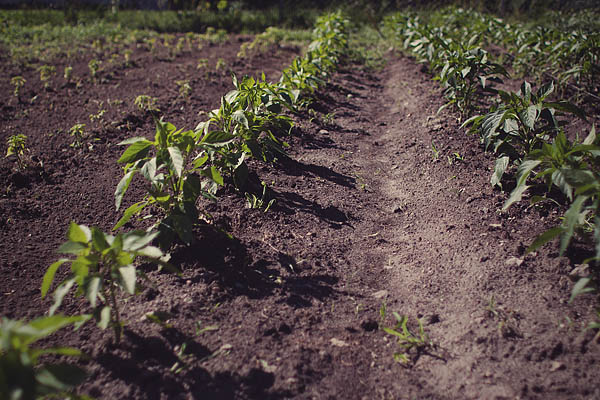
The lot at 1515 Fremont in North Minneapolis looks like a remarkably well-tended garden, boasting neatly weeded rows of tomatoes, cabbage, lettuces and other mid-summer greens. This isn’t the work of an avid homeowner, though: the mini-farm is one of seven spaces in the neighborhood that are part of Project Sweetie Pie, an initiative with ambitious goals, and the green thumbs to back them up.
The project started as an offshoot of an after-school horticulture program out of North High. Students chose sweet potatoes as a starter plant in order to sell them to Rose McGee of Deep Roots Gourmet Foods, and from there the program blossomed.
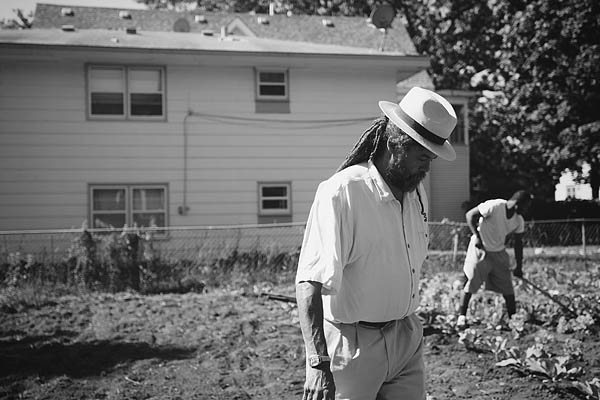
Helmed by Michael Chaney, a local artist and member of nonprofit group Afro Eco, Project Sweetie Pie is far more than an effort to teach young people how to grow food and learn some marketing along the way. It’s become a multi-partner community effort, bringing in 45 organizations that provide resources and support. A local homeowner, Robert Woods, provided his yard for the Fremont site, and a handful of young program participants work every day to farm the land.
“This is your next generation of young urban farmers,” says Chaney. “The plan is to take over some of the empty lots that are in North Minneapolis and turn them into spaces like these. There are many folks involved in this, we have many partners, but we all share the same goals in terms of using this program as a way to increase entrepreneurship among our young people and get more healthy food in the area.”
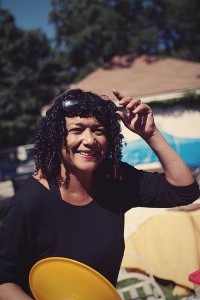
As he talks, Chaney looks out across the little field, sometimes directing the participants who are weeding, but his gaze often seems to extend beyond the vegetables. You can almost hear the thoughts zipping through his mind about where to network next, who to approach for funding, what can happen to expand the program. He talks about using the project for change as if he’s watching that change sprout from the ground, and he’s a bit impatient for it to grow into full flower.
“This is the future of our community,” he says frequently, and it’s easy to see why he thinks so. The space draws an array of people, from a University of Minnesota professor who jumps into the weeding with enthusiasm, to a retired documentary filmmaker who acts like a gruff-but-loving mentor who reins in the younger kids with ease. The lot is vibrant, busy, and filled with conversation — it’s the most ideal of community gardens, because it fosters community in every sense of that word.
Organizational participants are just as passionate as Chaney, too. Collie Graddick, with Community Table Cooperative, is eager to see the project succeed, because he envisions it as a starting point for more economic drive in North Minneapolis. More lots that grow more food could lead to a processing plant in the area, bringing in jobs and market demand, he says. He foresees that more students could be involved, and grow the food that’s served at their schools, and sold at local corner stores. Graddick believes that eventually, there could even be meat production at some point, giving the residents of North Minneapolis the ability to grow and raise everything they need. “This is the start of something big, really big,” says Graddick. “This is designed to bring economic development to our community.”

Finding land for all that urban farming could present difficulties in the future, though, believes Bud Markhart, a professor in the Department of Horticultural Science at the University of Minnesota. “The economic downturn makes it a little easier right now to find vacant lots for the short term, but if the economy turns around, I can see how that might become a challenge. This wouldn’t be the first urban center to have community gardens get taken over by developers. Hopefully, the city will work to put plans in place so that doesn’t happen.”
One challenge that would potentially hinder the project is lack of program participants, and many people initially warned Chaney that African-American youth had no interest in gardening. But he’s proven them all wrong by finding an array of helpers. One participant, 20 year-old Jordan Williams, says he joined because he wanted to learn how to grow healthy food, and to achieve a level of self-sustainability: “I think it’s a great thing, to be able to grow what you eat. It helps you be healthy, and to think in a healthy way.”
In the same way that the project is about way more than sweet potato pies, the future for Project Sweetie Pie is likely to be much richer and more expansive than it is now. Even with the challenges that may crop up with land availability, Chaney and his enthusiastic supporters and new farmers are ready.
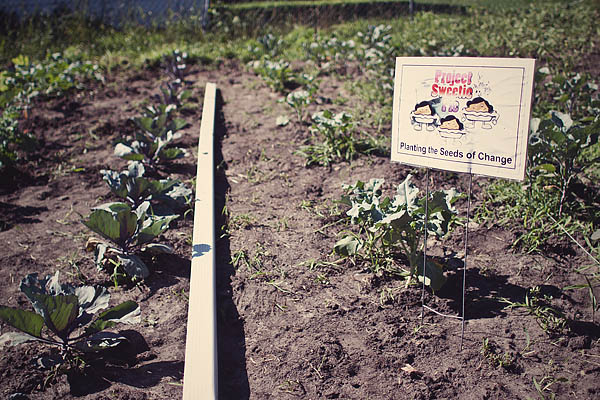

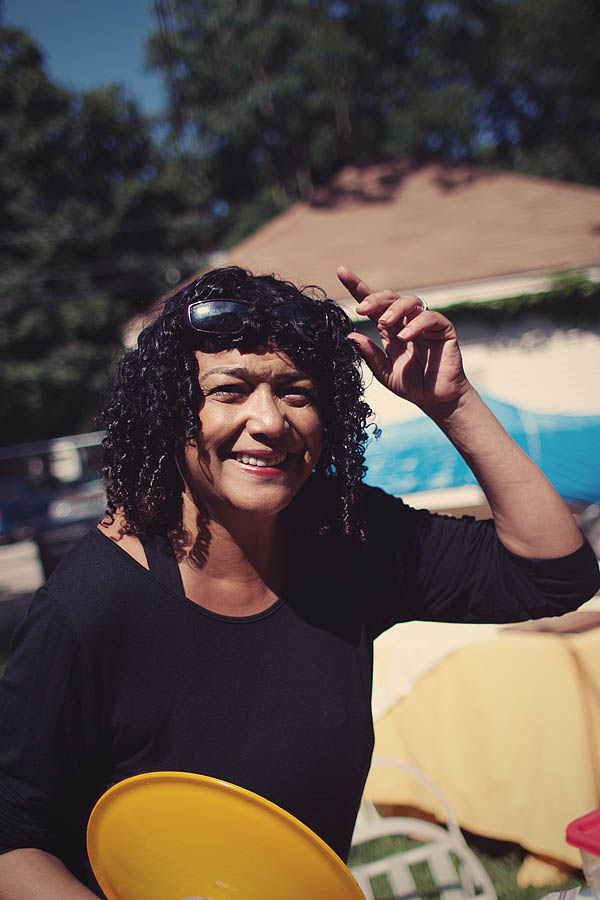
What a terrific article and a terrific outreach. Thanks Elizabeth!